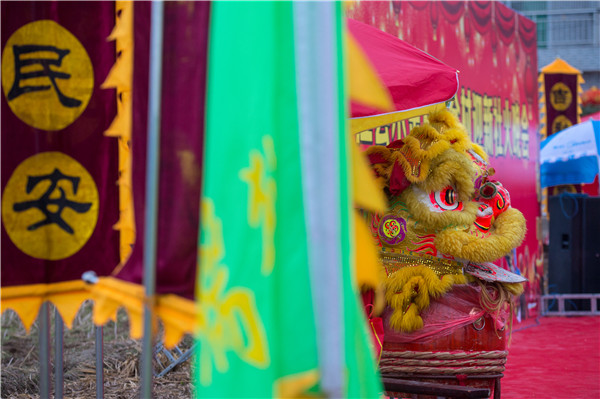 |
|
Lion dances and acrobatic performances are highlights of the Spring Festival celebrations in rural Yueyang. [Photo provided to China Daily] |
In Yueyang's villages, locals usually go to sweep the tombs of their loved ones. They take firecrackers and other offerings with them.
Spring Festival officially ends on the day of the Lantern Festival. On this day, people eat sweet dumplings called yuanxiao and light lanterns in the streets while enjoying the full moon.
But the festivities also come with taboos.
For example, it is believed that people should not touch a broom or throw away garbage on the first day of Chinese New Year, in a symbolic gesture of keeping good fortune from leaving families. On the contrary, major housecleaning must be done before the festival so as to drive out any bad fortune.
People are also supposed to avoid saying inauspicious things throughout the festival.
While some customs are still observed, local residents like 67-year-old schoolteacher Xu Lang say that many other traditions are gradually getting lost.
Many festival activities, such as local operas and lion or dragon dances, are fewer today.
Dragon-dance teams would go from village to village in Xu's neighborhood to wish people good fortune during the festival. People would thank them with gift money.
But these days, such sights are rare, he says.
Meanwhile, it has become common for the locals to indulge themselves in games of mahjong or cards.
The situation worries many elderly locals, including Xu, who believe efforts should be made to revive old traditions and avoid unhealthy practices.
"People's lifestyles have changed, and they have more access to different forms of entertainment today, such as the internet or television. But we should do something to keep the old traditions alive as well," Xu says.
"After all, tradition is the essence of Spring Festival."